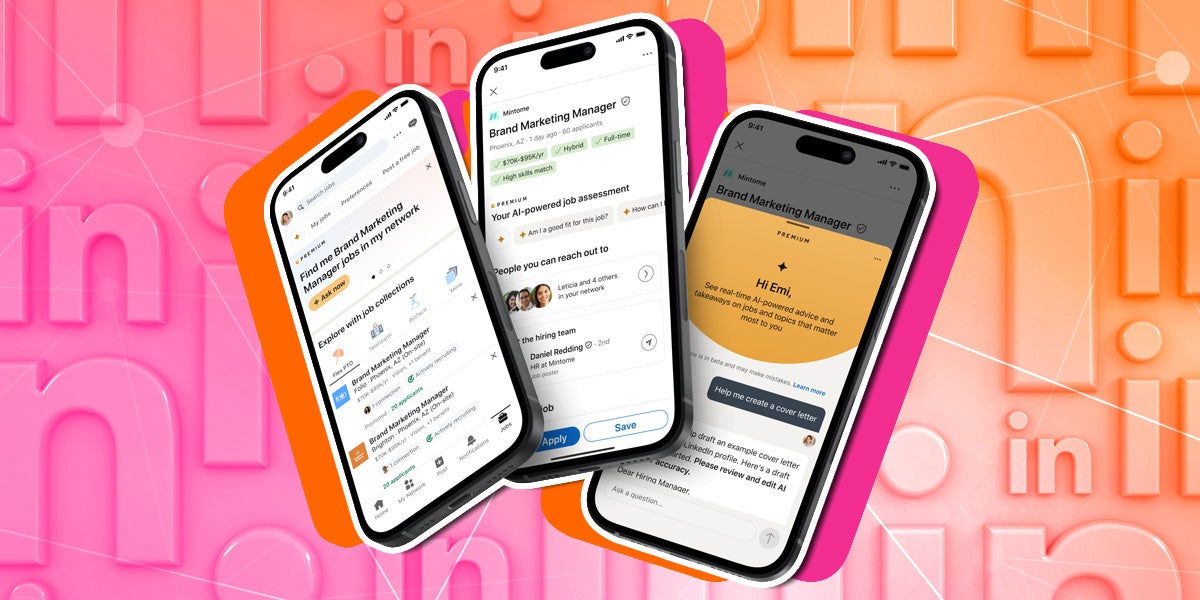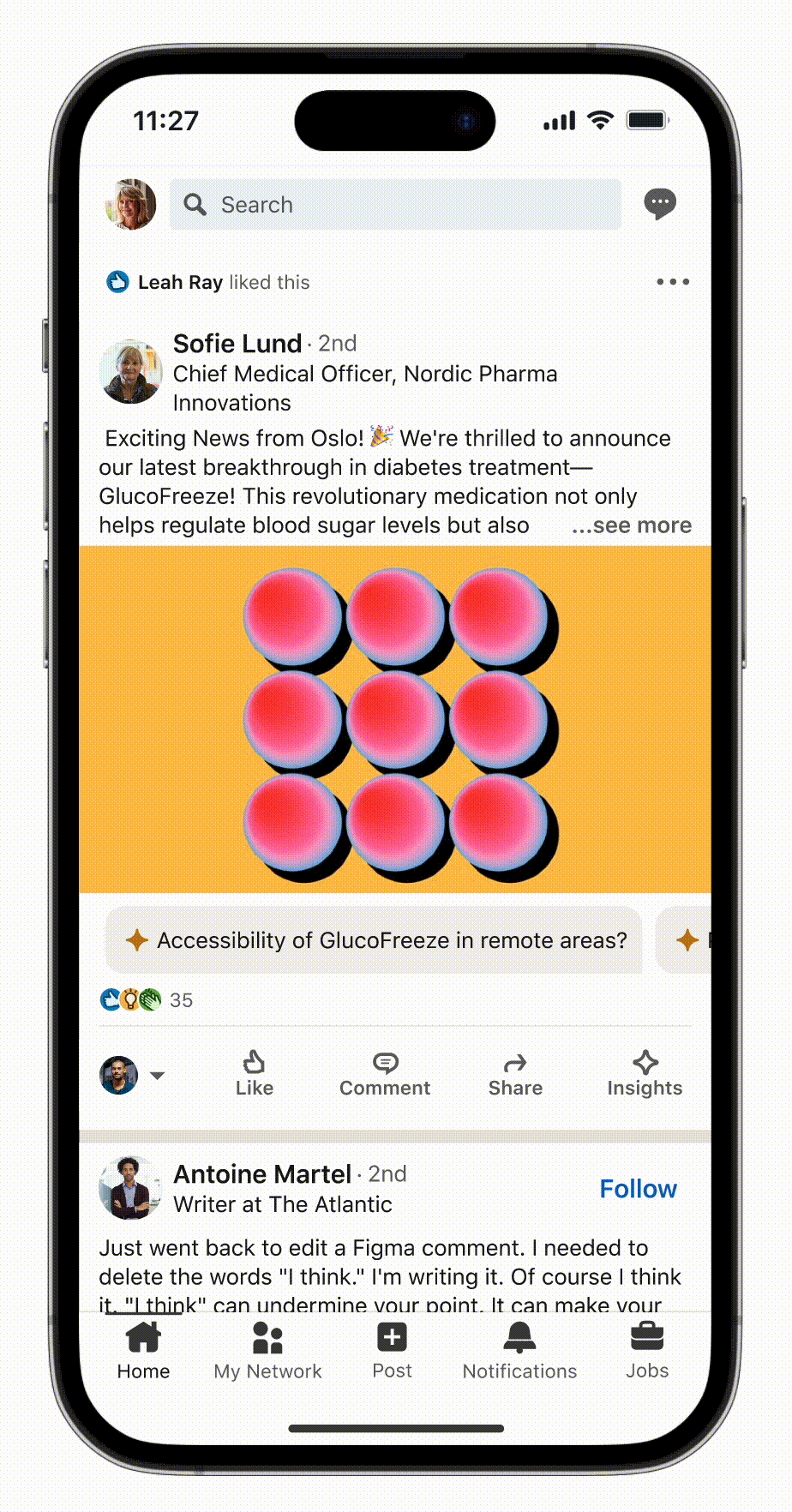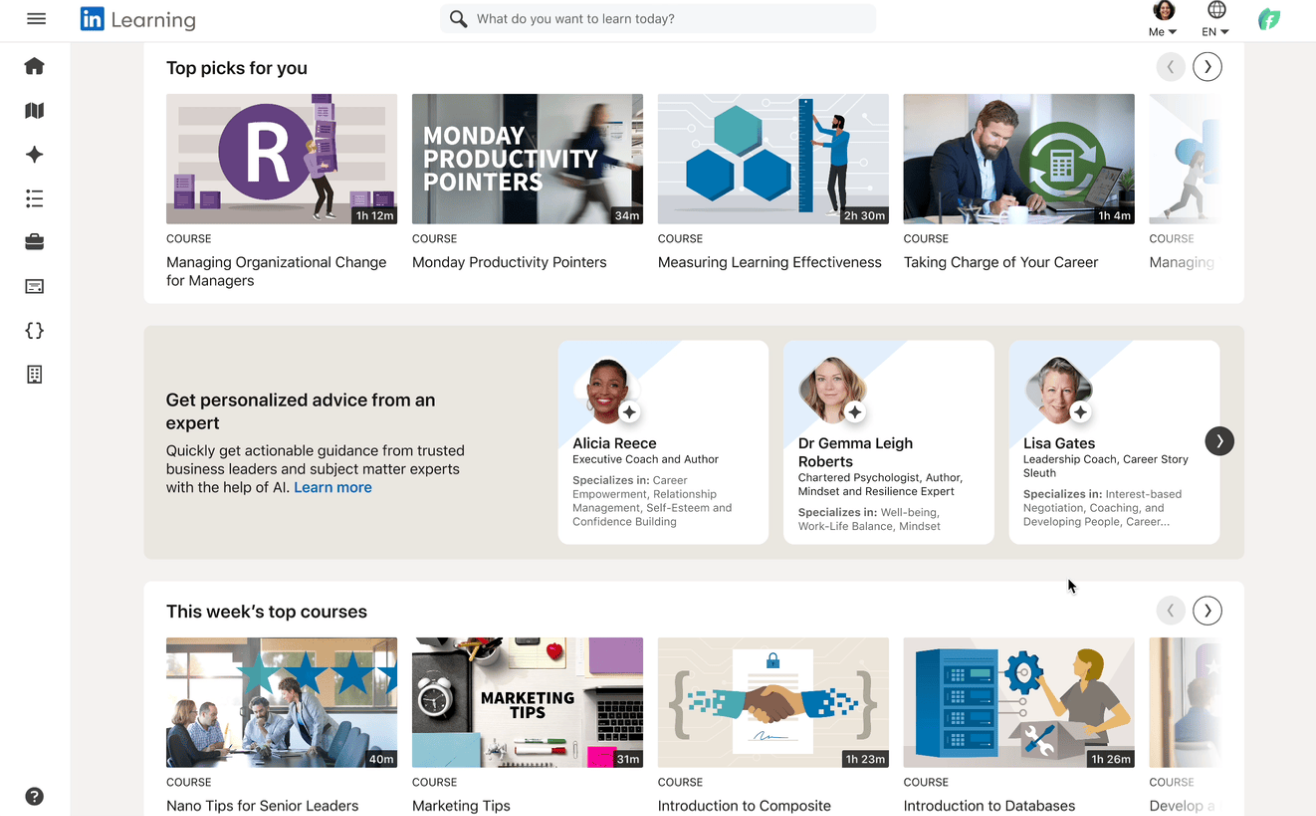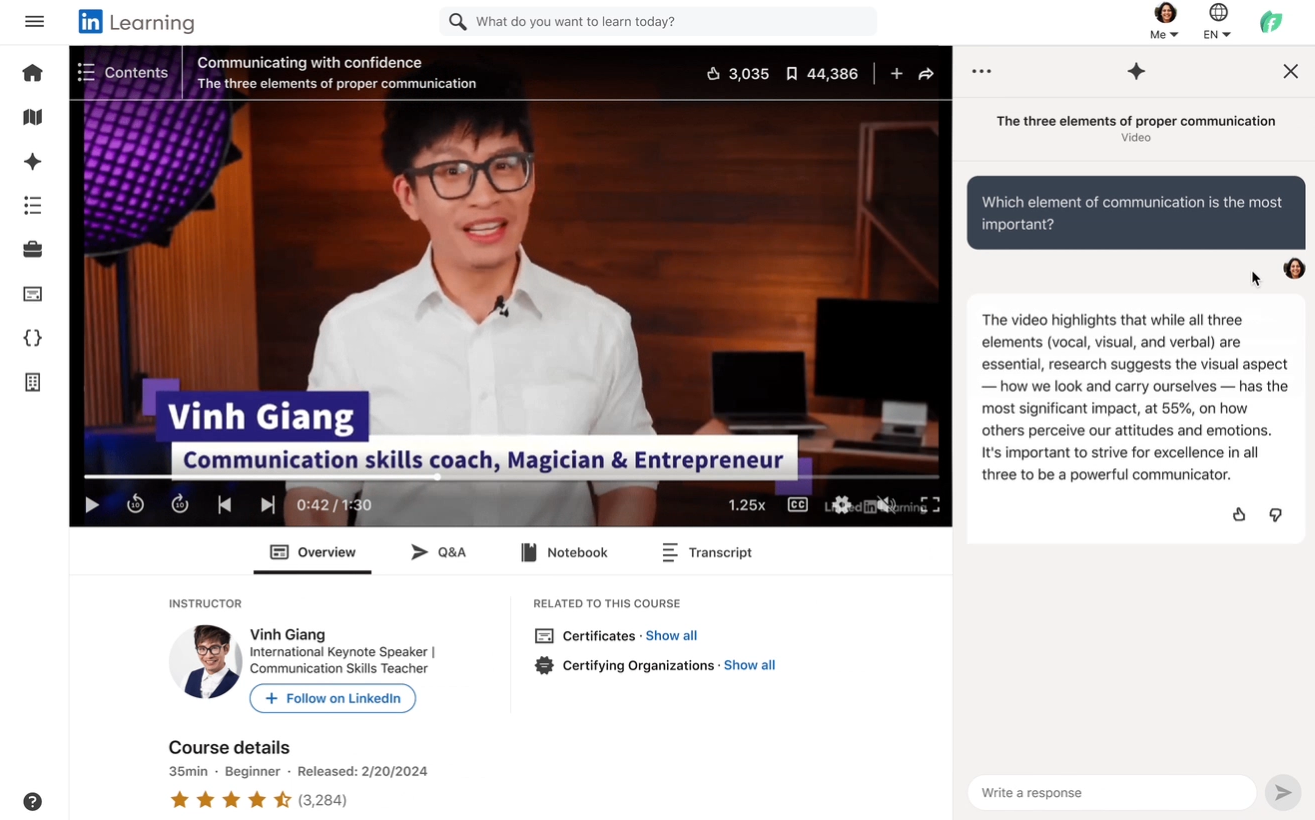
Yesterday, I attended a LinkedIn press event in New York City. In addition to the free bagels, juice, coffee, and crudités, I was presented with a suite of new premium AI tools that the platform publicly unveiled this morning.
Some tools are for recruiters and job seekers, like AI-powered messaging tools, bots that write cover letters, resume reviewers, and so on. Others, however, are specifically for advertisers and creators.
LinkedIn has been integrating AI on the platform for a while now, but some of these new changes are pretty drastic. Many of them will impact creators in immediate ways, so here’s what you need to know.
AI Insights
For starters, for LinkedIn Premium users, posts will now be accompanied by AI-generated content summaries. There will also be personalized suggestions for how to “dig deeper” on topics with additional learning questions and content recommendations.
This, along with all the other features announced today, is for LinkedIn Premium members only. Subscriptions start at $39.99/month or $239/year.

Brand Campaign Generators
Arguably, the most notable announcement was the development of an AI advertising campaign generator. In the demo, LinkedIn showed how brands can now plug in a prompt or website, which the tool will crawl to create suggested ad campaign materials.
The feature is integrated with Microsoft Designer, which generates images and graphic designs based on prompts. (In case you didn’t know, Microsoft owns LinkedIn.)
When I asked if AI-generated video and audio were in the works, the demo-er vaguely said that generative video is the “obvious next step.”
I also asked if influencer marketing campaigns will be a part of this new AI-powered advertising suite. The employee said that is “definitely where we’re heading.”
Considering this, I think it’s fair to assume LinkedIn will eventually develop its own version of TikTok’s controversial generative AI suite for advertisers, which is planning on developing AI-generated virtual influencers and currently offers abilities like scriptwriting and video production for brands.
AI Chat Bots
LinkedIn also announced that it is recruiting some creators to create Premium AI “coaching” chatbots based on their likeness, name, expertise, and content. So far, industry darlings like Alicia Reece, Anil Gupta, Gemma Leigh Roberts, and Lisa Gates are participating.

When I asked how and if LinkedIn would compensate experts and creators for this chatbot program, an employee told me that at least for now, it would be on a case-by-case partnership basis.
In addition, moving forward, premium learning courses made by creators will also include AI summaries and bots that will answer questions about the course content.

How does LinkedIn train its AI tools?
During a Q&A toward the end of the press event, I asked a panel of LinkedIn executives how exactly LinkedIn trained these new AI tools. I also asked if it’s possible to opt out of terms allowing AI training on your content. After all, companies like Adobe are catching a lot of flack for requiring users to sign similar terms.
The executives on stage sort of ducked and bobbed my question. Instead, they mostly chose to explain how AI will “help” creators and “enhance” their work rather than replace it.
But one executive did say, “A lot of the AI tools that we have, at least in the professional knowledge spectrum, are not yet at that point where they are either trained on [user] data or there are opt-outs.” Instead, she explained that LinkedIn pulls out keywords from posts and uses an AI language model. This model highlights key points or suggests follow-up “deeper” learning questions.
No one discussed how LinkedIn built the new generative AI tool for advertisers. However, it seems like the image generator comes from Microsoft Design. The details of how Microsoft trains its AI are… iffy, to say the least.
When I asked LinkedIn for further comment on how it uses user data to train its AI, it said users can “access, edit, and delete their data at any time.” It pointed to its Privacy Policy and User Agreement, which don’t explicitly mention anything about AI training.
“Down the road, it’s a really good question on how we want to think about that spectrum,” an executive at the event added.
While LinkedIn executives were insistent that such drastic AI changes will improve creators’ lives, they were clear on one thing — everything we know about work is going to rapidly change.
So we better grin and bear it. And, if we’re lucky, sign a swanky new partnership with the tech overlords to make ourselves into an AI clone. Up to us.




